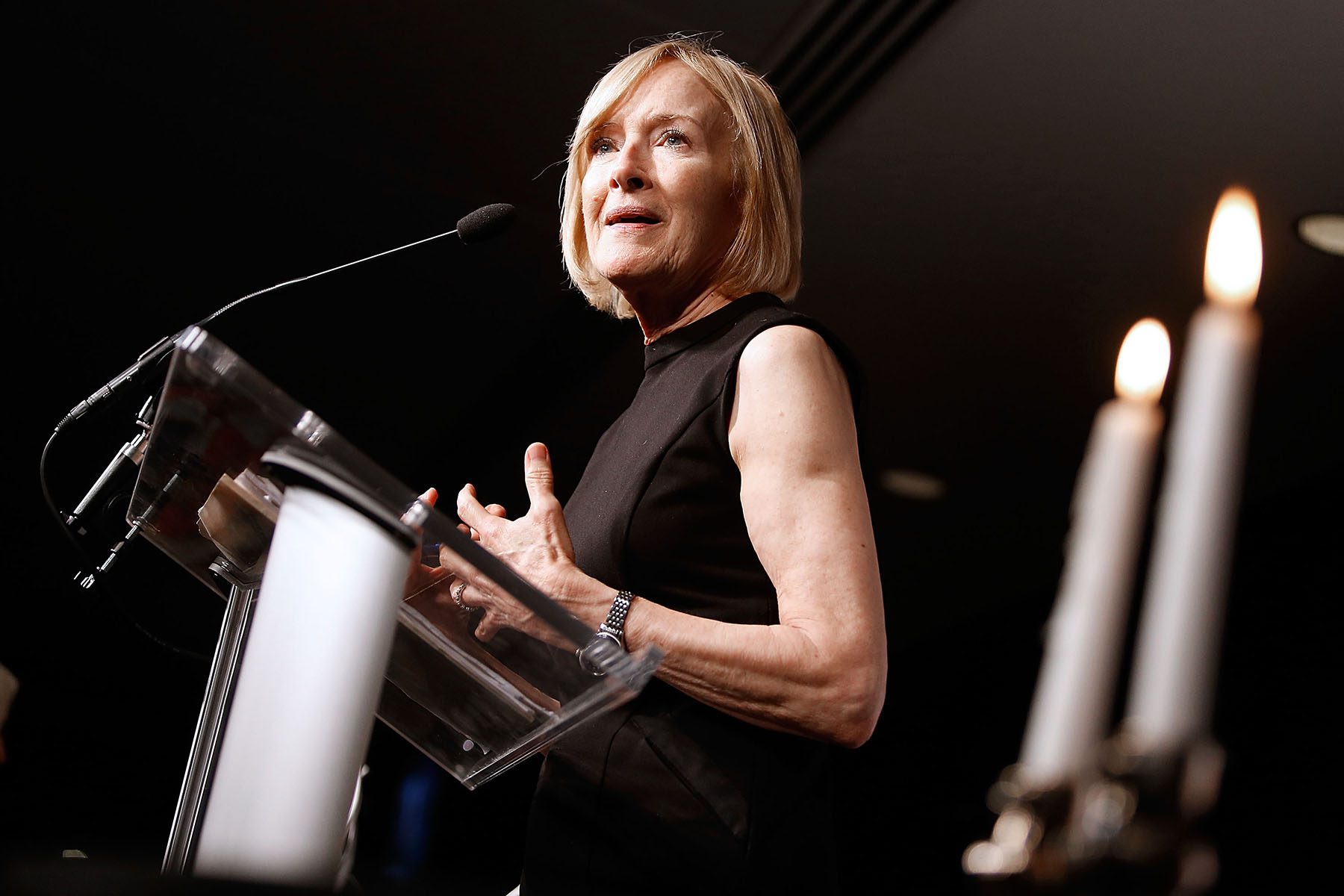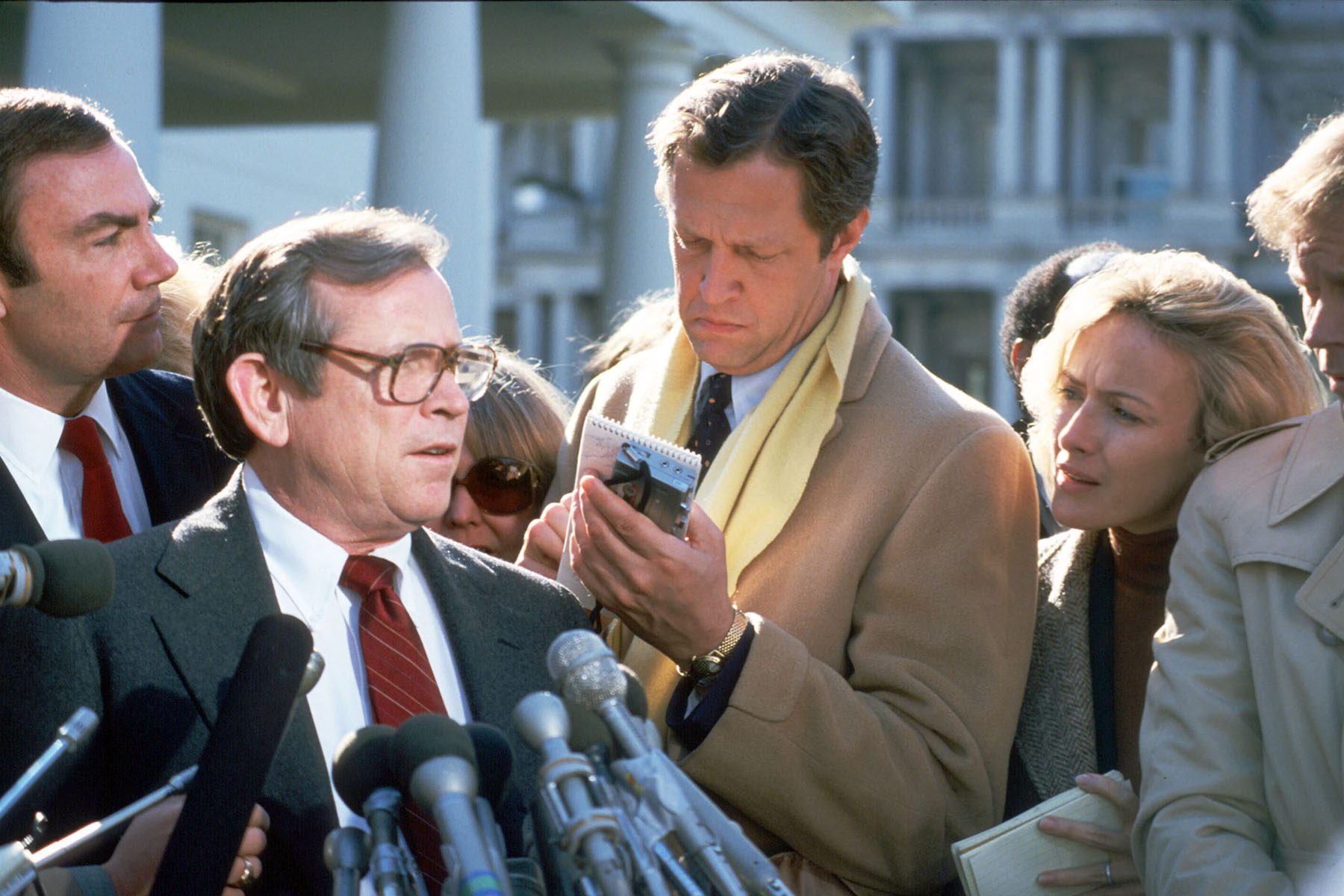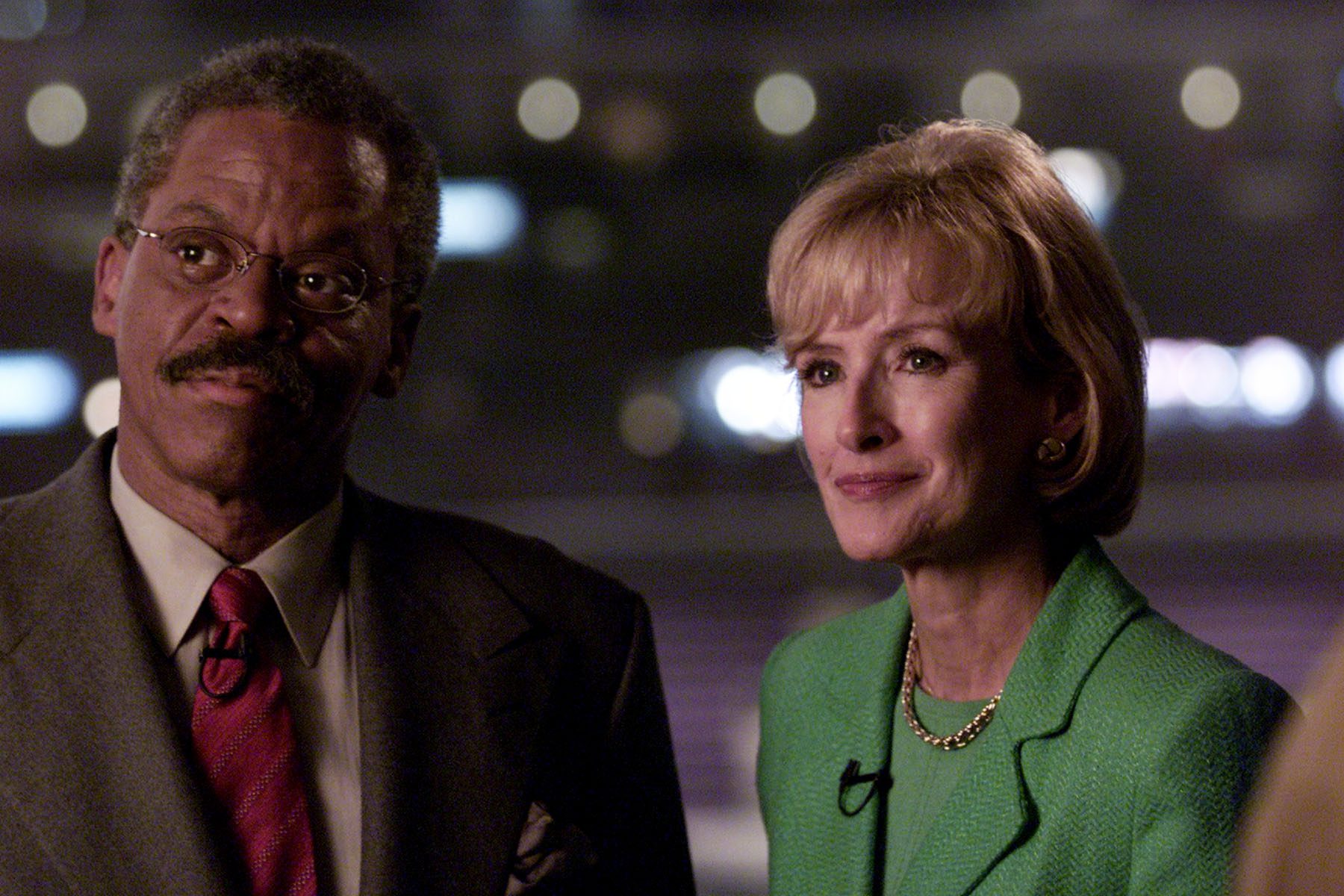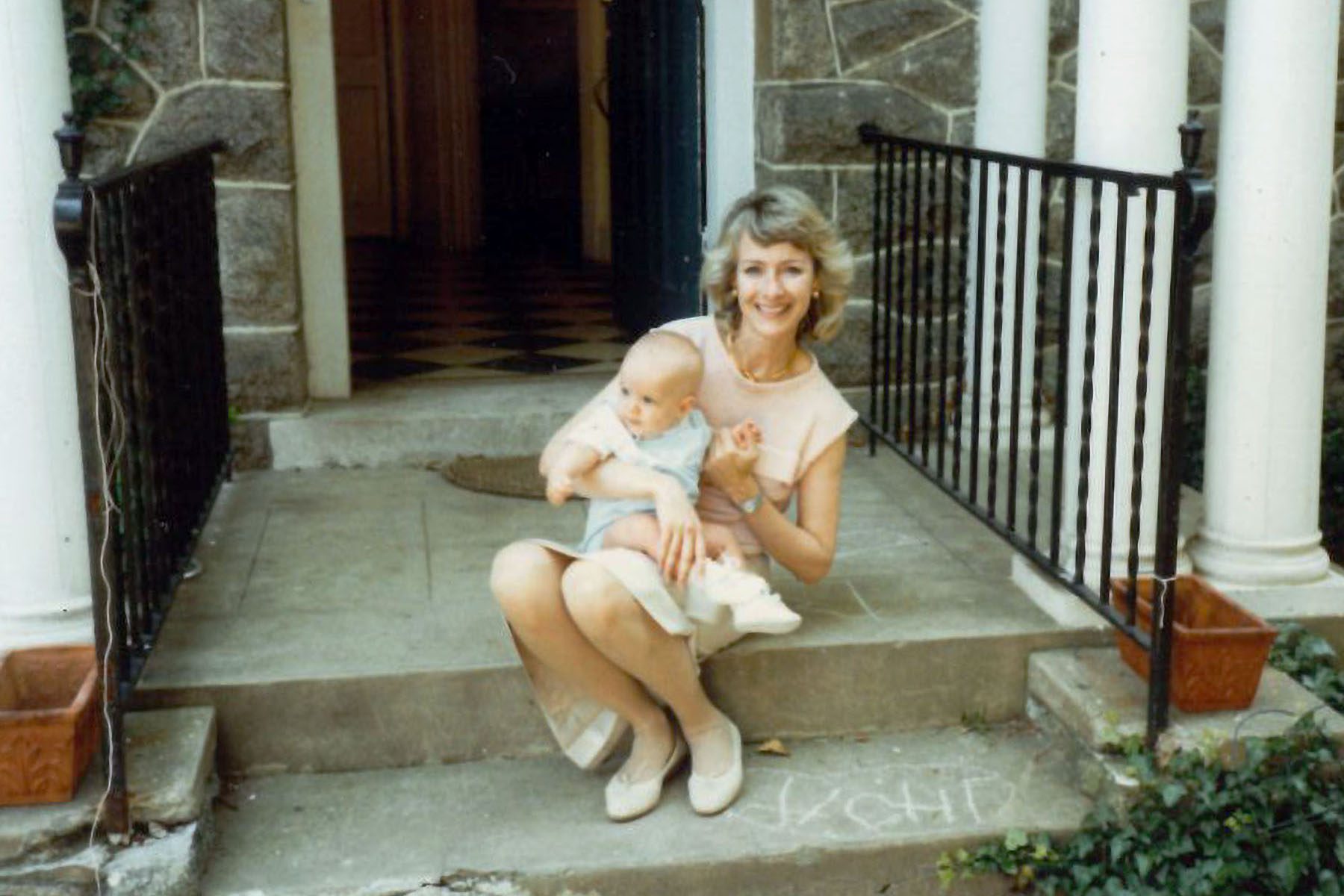After nearly five decades on the air as a political reporter, Judy Woodruff, the anchor and managing editor of “PBS NewsHour,” will be stepping away from the anchor desk at the end of 2022. (She will continue to report for various projects for NewsHour and PBS.) Woodruff has been a fixture of political journalism, shaping what contemporary television coverage of American politics has looked and felt like for a generation while also being a literal face of women in journalism. In advance of receiving a Lifetime Achievement in Television News Award at the News and Documentary Emmy Awards on September 28, Woodruff spoke with The 19th about the ways in which she is thinking about gender, politics and journalism.
Jennifer Gerson: We are so close to midterms, and the 2024 presidential election is going to be here before we know it. What do you see the role of journalists being in this political moment, and how do you think gender is impacting what we are seeing in our politics and what it means to cover politics right now?
Judy Woodruff: I don’t believe there’s ever been a midterm election as consequential as this one because we are in such a divided time in our country politically, for so many reasons. The Senate is evenly divided and the House — only a few seats could make a difference, one way or the other. There’s just a lot hanging in the balance. These midterms are huge, and I think we can’t do enough as journalists to pay attention.
The Dobbs decision [that ended a federal right to abortion] in early summer has truly shaken up these races. It’s motivating Democrats and especially women to get out and vote and work for one candidate to see them elected and get engaged. Without the Supreme Court decision this summer, I think you would be looking at a very different political landscape right now. Everything has changed.
Media, and especially political media, hasn’t always been an environment hospitable to women — but what do you think the role of gender in journalism is today and how do you think that role has evolved?
The role of women in this industry has changed in an enormous way. When I started out as a reporter, there were very few women reporters covering politics at all, in print or in broadcast news — we were very much the minority. I won’t say we were sore thumbs, but we stood out.
In the early days, I was very conscious of the fact that I wanted to be taken seriously as a reporter and I didn’t want to be slotted in what news directors frankly perceived as a less serious area of news — “women’s issues.”
Today we define “women’s issues” much differently. It’s women in the working world, women needing child care help, women tackling school and education issues for their children whether they work outside the home or not. It’s the economy, education, the environment and how women are affected by these issues. It’s issues like abortion and equal opporutnity in the workplace and having pay equity and the chance to advance and the chance to be paid what you deserve. So many more issues today fall under this heading of “women’s issues.” And today, women’s issues are everyone’s issues and journalists are much more comfortable in covering all of that. It’s a welcome change.
Now there are so many more women journalists joining the ranks of political reporters in print, television, radio, online — just across the board. Women journalists today embrace and welcome the opportunity to cover issues that impact women.

What do you think helped bring about that shift? Looking back and then seeing where we are today, what led to this sea change?
I think it was just reaching a critical mass. I’m never going to say that there are enough women covering politics. We always need more women as news editors in print, broadcast, just across the board. We need more women in management calling the shots of what gets covered and how it gets covered. But the change came when enough women were in this field that we reached a comfort level.
Frankly, I also think it just came from more women being in the workforce, too, playing a role in the economic well-being of their families, the financial well-being of their families. It’s not just women being in the workforce, but women who are staying at home to raise a family showing that they are still interested in a lot of issues around them, especially education and health care.
We simply realized that without the voices of women and acknowledging the active role that women play in society, we weren’t going to solve these problems. It hasn’t happened overnight. There’s no one day you can point to and say, ‘Oh that’s when things changed.’ But a large part of the reason women today feel more comfortable tackling these issues and being more vocal about them is not worrying about being seen as talking about something that is a so-called “women’s issue” for fear that people will take us less seriously.

I remember in 1992, we called it the “Year of the Woman” because there were so many women running for office and a lot of them were elected. But there was some backsliding after that, too. We’ve gone up and down in terms of how many women are elected to office. We have so many more women in the House and the Senate and so many more women who are being elected at the state and local level. Now it feels like women are everywhere you look in politics, not to mention in political journalism. We have reached a critical mass — but it has taken a long time to get here.
When we look at what issues feel really on the ballot this year, how would you describe what this moment feels like in understanding the way gender is impacting how our society works and doesn’t work?
Women voters could very well be the decisive factor in many of these midterm races. We won’t know, of course, until the vote happens. But at this point in the polls, there is an apparent divide between what men say is their top issue and what women say is their top issue, and we want to continue to keep an eye on that. I think, again, with the Supreme Court ruling on the Dobbs decision essentially overturning Roe v. Wade, and turning the issue of abortion back to the states is a major factor now.
I also think that education has become a much bigger issue because of the pandemic and what it meant for families and women. Women have fiercely jumped into education as their issue — what’s happening with their children’s education. We are already seeing this in the way women are getting involved in school board races and organizing around ballot issues pertaining to the topic of education. I don’t see education as an issue benefitting one party over the other. But it’s a clear example of where you see women raising their hands and getting involved in an issue in a way that we have not always seen in the past, and we as journalists have to pay close attention to this.

You have built an incredible career and you are also a mother. How do you see the role that having these other identities outside of who you are as a journalist impact your work?
I salute any mom who is able to combine parenting with journalism. It’s hard. It’s just hard. I have three children who are all adults now, and when they were younger, we were very fortunate to have help. But no matter how much help you have or you don’t have, you’re still the mom. You’re the parent and it’s an unbreakable bond — and an unbreakable commitment and it spells responsibility 24/7. It took me a long time to realize this.
I thought in the beginning, “Oh I can do it all! I can have my career! I have got all this energy! I can raise children too!” – but the fact is that you can have it all, but not at the same time. There is literally no way you can give 100 percent to your job and also 100 percent to your family and your children. There will be trade-offs at times. There will be school events you miss, stories you pass off to someone else. Do I wish it were different? Absolutely.
I celebrate the fact that more dads are now openly embracing the role of parent. They are more open about the fact that they have to take a day off to take a kid to the doctor or that they have to leave early to go to a school event. Maybe their employer even supports it and offers leave after a baby is born or to care for an elderly parent that needs help. But we need so much more of that.
We need to make it comfortable for moms and dads to take the time they need. Our employment picture in this country is far tougher for moms than it is for dads, and as long as that is the case, women will have extra responsibilities. So my view is that I encourage women to make their own decisions about what they want to do, knowing that there are always going to be trade-offs. It’s just the way it is. It’s not always fair, but these are true things. If you want a family, that’s an enormous responsibility and one of the great joys in life. And if you want to be a great reporter — that’s another great joy in life!
Twenty-five years ago my husband was Washington bureau chief of the Wall Street Journal and he had managed to arrange — and this was way back in the ’90s — for two of his women reporters who worked in the bureau to continue to work after they had children by offering them to work a three-day week. He really wanted them to have the chance to be moms and have a family and have the opportunity to continue their work after having babies — and it was incredibly successful. There are all kinds of ways to do this. We need to be more supportive as a country and as employers of moms and dads to make it all doable.

What advice would you give to journalists right now — both those starting out in their careers and those well-established in their careers — in terms of what’s most important to keep in mind right now when we think about the future of journalism?
If you’re smart, curious, if you care about what’s going on in the world and your country and your state and your community and you want to be a part of reporting on it, we need you.
Curiosity means always wanting to know more. To understand what the facts are around any story is, to me, absolutely essential. There is so much opinion right now in American journalism. We have seen it overtake journalism broadly. But I’m old-fashioned. The first thing we need to worry about as journalists and reporters is covering the news. We need to cover the facts. As a journalist, you need to get as much information as you can and doing that is the best foundation you can lay for your future. If you learn about the importance of facts and information, you can worry about the opinion later.
What we need are reporters who show up ready to come in and roll up their sleeves to do the hard work of digging up facts and information and then sharing that with everyone in a way that people will find compelling to read, watch, and listen. That’s the most valuable thing I think you can do.







